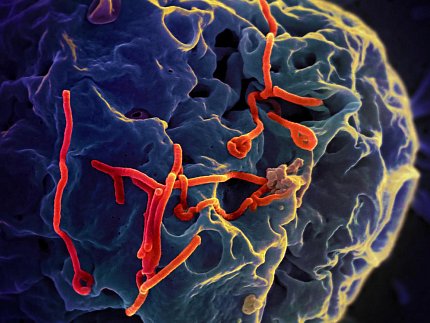Monoclonal Antibodies Crucial To Fighting Emerging Infectious Diseases

Photo: NIAID
Monoclonal antibodies (mAbs)—preparations of a specific type of antibody designed to bind to a single target—have shown promise in the fight against cancer and autoimmune diseases. They also may play a critical role in future battles against emerging infectious disease outbreaks, according to a new article by NIAID scientists.
The article is published online by the New England Journal of Medicine and outlines the potential uses for mAbs as treatments for infectious diseases and as a prevention tool for protecting individuals at risk of infection and slowing disease outbreaks.
The article, written by NIAID director Dr. Anthony Fauci and colleagues Dr. Hilary Marston and Dr. Catharine Paules, highlights the research advances that could allow for rapid, strategic deployment of mAbs to prevent and treat emerging infectious diseases and, potentially, alter the course of epidemics.
Although mAbs were originally described in the 1970s, their value has become more widely recognized as scientists have developed more direct and improved approaches to identifying, selecting, optimizing and manufacturing them. These advances have allowed for improved safety and efficacy and substantial efficiencies in identifying promising candidates.
